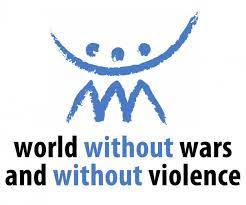Initiators
Feel Free to Contact Us +91-93-124-65666 admin@whfasia.org
World Humanist Forum (Asia) is inspired by Silo’s New Universal Humanism. It is supported by Asian members of the Humanist Movement and adherents of Silo’s Message. Their diverse activities are organised under the following names:
Humanist Movement
 The Humanist Movement first appeared on the 4th of May 1969, with a public discourse by its founder, Silo, known as “the Harangue of the Healing of Suffering”, given in an outpost in the Andes called Punta de Vacas, close to the border between Argentina and Chile.
The Humanist Movement first appeared on the 4th of May 1969, with a public discourse by its founder, Silo, known as “the Harangue of the Healing of Suffering”, given in an outpost in the Andes called Punta de Vacas, close to the border between Argentina and Chile.
The Humanist Movement is based on the current of thought known as New Humanism, or Universalist Humanism. This current can be found expressed in Silo´s works and in those of the diverse authors who are inspired by it.
This current of thought, which also implies a sentiment and a way of life, takes shape in multiple fields of human endeavor, giving rise to diverse organisms and action fronts. All of them are applied to their specific fields of activity with a common aim: to Humanize the Earth, thereby contributing to increased freedom and happiness in human beings. In themselves they have in common the methodology of Active Nonviolence and the proposal for personal change as a function of social transformation.
Humanist Movement inspired the following organizations
1. The Community (for Human Development)
 The Community for Human Development: The Community was founded in mid-1980 as a social and cultural organization of the Humanist Movement.
The Community for Human Development: The Community was founded in mid-1980 as a social and cultural organization of the Humanist Movement.
The objectives of The Community are the study, development, dissemination and installation of a new culture based on the fundamental ideas of Universalist Humanism.
This new culture will be the correlate of a configuration of an advanced consciousness in which all forms of violence provoke repugnance. The installation of such a structuring of a non-violent consciousness in societies would be a profound cultural conquest. This would go beyond ideas or emotions that are weakly manifested in present day societies, and start to form part of the psychosomatic and psychosocial framework of the human being.
The humanist attitude, an essential aspect of this new culture, beyond all theoretical proposal, may be understood as a “sensibility”, like a stance in front of the human world in which the intention and liberty of others is recognized, and in which a commitment to a non-violent struggle against discrimination and violence is made.
The Community promotes projects for the real application of this new culture in different ambits of personal and social life.
This new culture is based on a new conception of the human being from which a scale of values, a methodology of action and a personal and social project are derived.
A scale of values whose 6 fundamental points are:
- In first place, the location of the human being as the central value and concern, in such a way that nothing is above the human being and no human being is above any other.
- In second place, it affirms the equality of all individuals and thus works for the overcoming of the simple formality of equal rights before the law to advance towards a world of equal opportunities for all.
- In third place, it recognizes personal and cultural diversity and so affirms the characteristics proper to each people, condemning all discrimination that is done on the basis of economic, racial, ethnic, gender and cultural differences.
- In fourth place, it encourages all tendencies that develop knowledge beyond the limitations imposed on thought by prejudices that are accepted as absolute or immutable truths.
- In fifth place, it affirms the freedom of ideas and beliefs and, finally;
- It repudiates all forms of violence, understanding not only physical violence as the sole factor, but also economic violence, racial violence, gender violence, religious violence, moral violence and psychological violence as daily cases, and rooted in all regions of the planet.
- The rejection of, and a void towards, all forms of discrimination and violence.
- Non-collaboration with violent practices.
- Denunciation of all acts of violence and discrimination.
- Civil disobedience in front of institutionalized violence.
- Social and voluntary organization and mobilization in solidarity.
- Decisive support to everything which favors active nonviolence.
- The overcoming of the roots of violence in oneself, development of personal virtues and the best and most profound human aspirations.
In accordance with this methodology, action for social transformation is not opposed to the action of personal transformation. On the contrary, The Community understands them as intimately linked and as a consequence proposes simultaneous action to overcome social (external) violence as well as personal (internal) violence.
A personal and social project that attempts to surpass the present crisis of violence, disorientation and lack of meaning which human beings suffer. This project is synthesized in the ideal of Humanizing the Earth.
2. Humanist Party
 The Humanist Party was created in mid-1984 by the Secretariat of Social Affairs of the Community for Human Development and its first International Congress was held in Florence in 1989.
The Humanist Party was created in mid-1984 by the Secretariat of Social Affairs of the Community for Human Development and its first International Congress was held in Florence in 1989.
Basic ideas: The proposals of the Humanist Party (1) start from the need for liberty that we experience as human beings and aim towards social transformation and overcoming of violence that, in its different forms, generates suffering and contradiction in individuals and peoples.
Human beings have the capacity to transform the world and themselves, thanks to the intentionality of their consciousness, advancing and accumulating historical achievements.
We are born into a social and historical environment that imposes conditions within which we develop our existence and among which, we must, necessarily choose. In turn, this generates new conditions that are experienced with coherence or contradiction.
Contradiction has its personal correlate in the register of suffering.
Social contradiction is the product of violence. This violence manifests itself in the action of divesting a human being or human groups of their intention (and certainly of their liberty). The appropriation of the social whole by one part is violence.
Personal and social suffering must be overcome by modifying the situations of illegitimate and violent appropriation that have produced contradiction in the world.
In the process of growing humanization, human beings direct their intentionality towards nature and society in order to transform the conditions that bring pain and suffering to themselves and others with whom they can identify. This struggle gives continuity to the historical process and meaning to life, as they affirm their intentionality in front of non-meaning and oppression.
This intention, which rebels against sickness, inequality and injustice, considers rebellion against death as the height of disobedience before an apparently natural destiny, giving coherence to human life and allowing the projection of its own liberty beyond all limits.
Proposals for political action: The Humanist Party advocates the upholding (or the achievement, where necessary) of a democratic regime as a means of transition from formal democracy to real democracy, in which a real separation of powers, respect for minorities and direct democracy can be guaranteed.
It rejects the violation of human rights, the use of violence as a means to resolve conflicts and the concentration of power.
Regarding its methodology of action, Humanism is governed by nonviolent action.
At the same time, it denounces all forms of violence: physical, economic, racial, religious, sexual, psychological and moral.
We aspire to a Universal Human Nation, in which the enormous human diversity of; ethnicities, languages and customs, localities, regions and autonomous territories, ideas and aspirations, beliefs, atheism and religiosity, will all converge.
In coherence with this aspiration, the Party can count on a worldwide federation which allows it to articulate positions and campaigns of international scope, maintaining autonomy and creativity in different levels of action down to the social base where it has its roots.
Within our proposals at a worldwide level we highlight, due to the urgency: the task of nuclear disarmament, by alerting the whole of humanity of the need for it and by generating a consciousness that demands it; the immediate withdrawal of invading troops from occupied territories; the progressive and proportional reduction of conventional weapons; the signing of non-aggression treaties between countries; and the renunciation by governments of the use of war as a means to resolve conflicts.
The Humanist Party denounces the ecological catastrophe and its promoters, namely big capital and the chain of destructive industries and businesses which are the offspring of the military-industrial complex.
It highlights economic violence as the cause of suffering in people, especially that which is due to the concentration of speculative financial capital. In this sense it advocates for tax reforms that give incentives to the progressive distribution of wealth and new cooperative models of self-management and co-management that give coherence to the relationship between capital and labor, increasing productivity and avoiding the diversion of resources to speculation. Likewise, it advocates the creation of an interest-free public bank which will help to acquire these objectives by avoiding the illegitimate concentration of resources and power currently in the hands of present-day banks.
Different forms of discrimination are intertwined with economic exploitation and acquire a violent character. The Party highlights the violence that is specifically exercised against women and young people; who have historically been discriminated against, together with the discrimination exercised against other human groups which are excluded for economic, racial, cultural or religious reasons.
The Party advocates the decentralization of political power down to the base of society, extending guarantees of respect for minorities and making effective the principle of equal rights and opportunities for all.
Universal access to free, high-quality Education and Healthcare at all levels is the priority for the Party.
The Party upholds the principle of choice as the concrete political expression of liberty and, thus, it struggles against all forms of authoritarianism and economic, organizational and ideological monopolies.
We consider that all coherent policies must have two basic conditions:
- Permanent renovation of juridical and political institutions, based on the idea of the new replacing the old, and
- Transparency in the political procedures employed.
3. World Center for Humanist Studies
 The World Center for Humanist Studies was founded in the First World Humanist Forum in Moscow in October 1993.
The World Center for Humanist Studies was founded in the First World Humanist Forum in Moscow in October 1993.
Definition: The World Center for Humanist Studies (WCHS) is an organization dedicated to the study, investigation and diffusion of the thought and vision of Universalist Humanism and its application to current social and scientific problems. It supports all tendencies that go towards the development of knowledge over the limitations placed by prejudices that are accepted as absolute and immutable truths. It also promotes structural, dynamic, relational and critical thinking.
At a world level, the WCHS develops within a diversity of countries, continents and cultural zones. It proposes the elaboration of productions (writings, audiovisual, etc), programs of work, trainings and the diffusion of the Universalist Humanist doctrine: all of which is oriented towards personal and social transformation and guided by a commitment to apply this knowledge only for the wellbeing and development of the human being. It also proposes the creation and development of new Centers for Humanist Studies (CHS), especially in those cultures where it is not sufficiently represented.
To carry this forward the WCHS forms commissions, action fronts and other types of bodies necessary for the fulfillment of its goals. It organizes courses, seminars, debates, conferences, congresses, symposia and other events that are appropriate for the diffusion and presentation of its productions. It edits, emits and publishes its positions for the public opinion as well as to be considered in the decisions taken by relevant authorities. In the development of these activities, agreements will sometimes be made of mutual collaboration and interchange with other persons, associations or organizations (public, private or mixed) but without establishing any organizational dependence with them.
At a local level, participation in the CHE is open to everyone who has a genuine interest in realizing the investigations and works directed toward these goals, stimulating the interchange and joint work among its members.
Background: The WCHS, an initiative of Silo, was created in the 1st World Humanist Forum in Moscow in October 1993. Its activities were framed within the orientation of Universalist Humanism.
In its first stage, which lasted until the beginning of 1998, the WCHS carried out seminars and studies dedicated to the investigation of humanist traditions and innovations in different cultures, and in the economy and social sciences in general. These seminars were developed together with the Institute of the Russian Academy of Sciences, cultural centers in Buenos Aires, Santiago de Chile, Mexico and Madrid and other university and scientific institutions. In 1994 the WCHS participated in the 2nd.Humanist Forum in Mexico and in the following year in the Open Meeting of Humanism in Santiago de Chile.
The results of these investigations were published in the World Center for Humanist Studies Annual” in 1994, 1995, 1996 and 1997. Also, the “Dictionary of New Humanism” by Silo was published, which is today incorporated in his Completed Works, Vol. II.
Beginning in April 2006 the continuation of the WCHS was set in motion by the CHS in Buenos Aires. In this same year new Centers of Humanist Studies (CHS) were formed in Barcelona, Santiago de Chile, Madrid, Moscow, Paris and Rome.
What began then was a sustained activity by both autonomous and simultaneous action in different cities and countries. Meanwhile, beginning with seminars given in different cities in the Americas and in Europe, the study and investigative methodology of the WCHS was developed.
In November, 2008, the 1st International Symposium of the WCHS, “Ethics in Knowledge”, was held in the Parks of Study and Reflection Punta de Vacas. The symposium in Punta de Vacas was preceded by presentations in the Universidad de Cuyo, Argentina and the Universidad de Santiago, Chile. In this event the World Federation of Humanist Studies Centers was constituted, shaped by the CEH´s earlier mentioned and others in formation, and formalised by the assistants taking the “Oath of Ethics”.
In April 2009 the CHS in Europe organised the “International Symposium about Non-violence” in the Parks of Study and Reflection in Attigliano.
Conceptual Foundation: While Universalist Humanism is an extensive and rich doctrine, we can highlight the following points as a conceptual base over which a new vision of the human being, society and history has been constructed.
- The Human Being: Universalist Humanism defines the human being as an historical being whose form of social action transforms his own nature, a being opened to the world with a social-historical dimension. A being whose consciousness is active and whose activity is the transformation of the world in accordance with his intention, an intention directed to the overcoming of pain and suffering that leads to the humanization of nature, society, one´s own body and oneself.
- Humanist Moments: Universalist Humanism emphasizes the existence of humanist moments in the history of different cultures where the following characteristics can be found:
- location of the human as the central value and concern
- affirmation of the equality of all human beings
- recognition of personal and cultural diversity
- development of knowledge beyond that accepted as absolute truth
- freedom of ideas and beliefs
- rejection of all forms of violence
-
Beginning with experience: Universalist Humanism develops its doctrine beginning with human experience. It doesn´t begin from ideas, theories or abstractions but instead from the observation of one´s own experience. This leads its development to include the observer in structure with the phenomena being observed, not from an assumed objectivity that does not consider how the observer affects that which is being observed. This posture of the observer leads one to employ a rigorous phenomenological description before a theoretical description. This is a method that leads not only to an explanation but above all to the understanding of what is being studied.
In this sense and in essence, Humanist Psychology begins from the experience of the existent as the structure consciousness-world.
Moreover, the consciousness is experienced as open to the world and in constant dynamic. It is in this dynamic structure where the base of human experience is found and where the doctrine of Universalist Humanism begins.
It is from this foundation that a methodology of thought and an ethic of action are based.
-
Methodology of thinking: We can observe a double capacity in the consciousness. On one hand, it has the ability to perceive phenomena from both the external and internal world; on the other hand, it attempts to order and give meaning to what is being experienced through thinking. It is from the registers of thinking and the observation of its mechanisms that a methodology of knowledge based on the ”experience of thinking” can be founded. The most general developments of thought permit the elaboration of principles and universal laws.
For its studies and investigations, the WCHS proposes a method based on the observation of the experience of thinking. This method, together with universal principals and laws, forms a coherent structure that facilitates the understanding of the problems being addressed.
The Method is presented as an assembly of analytical-synthetic procedures that enables an ordering of the phenomena being studied and facilitates their understanding. The use of the Method tends to re-educate the way one approaches learning and one´s way of understanding and in so becomes a tool that transforms both the one who investigates and the surrounding world.
-
Ethics of Action: Having experience as the initial consideration, the validity of behavioral acts cannot be pondered without the register that one has of them.
It is because of this, rather than an external moral value, that Universalist Humanism proposes “Principles of Life” that relate with internal registers and orient behavior towards carrying out “valid actions” .
The indicators that enable the identification of these ”valid actions “, that is those that produce meaning, coherence and internal growth are:
- the register of deep relaxation when they are carried out
- the desire to repeat them
- the sensation of internal growth
-
On the contrary, actions that produce contradiction between what one does and what one thinks and feels weaken the internal development of people.
In social terms, having relationships with others must consider not harming others with one´s own actions; for this to be coherent with the aforementioned we should consider the Golden Rule which states “Treat others as you want to be treated”.
This constitutes a scale of values whose highest value is coherence, a new moraity that is not indifferent to whatever type of action, and a new aspiration to be consistent in the effort to give direction to human endeavor.
Genuinely solidarious actions, those that look out for the well-being of others over one´s own interests, go in this direction and are those that help the growth of human society.
The search for knowledge and its application should necessarily also have an ethical framework that demands that the investigation and the use of knowledge will only be in favor of the growth of human life, never generating or justifying harm or destruction.
It is for these reasons that the WCHS proposes that scientific research should be accompanied by an “Oath of Ethics” that explicitly commits scholars and researchers to apply their knowledge only in favor of human life. This “Oath of Ethics” gives a basis to all research and guides the mental direction of the investigator, deepening a process of self transformation while he develops his study.
Only this, and nothing else, can be the final interest of knowledge, which is the patrimony of the human process and can then be considered “good knowledge”.
The social and ethical construction of nonviolence.
Universalist Humanism aspires to the building of a Universal Human Nation as the goal of the human social process. In order to work towards this objective it is necessary to have a methodology of action that is coherent with its ethic. This methodology is nonviolence.
Nonviolence can be understood as a system of determined moral concepts that rejects violence, as well as an operating strategy of the systematic and consistent denouncement of the forms of violence that the system applies.
Nonviolence is recognizable in the actions carried forth by Mahatma Gandhi, Martin L. King, Kwame Nkrumah and others.
While pacifism is the denunciation of the arms race, nonviolence is a method of action and a way of living.
This method of action is formed by the internal coherence of thinking, feeling and acting in the same direction and the social coherence of treating others as you want to be treated.
In moving towards liberty, the human being fights to overcome conditions of pain and suffering. In doing so the methodology of nonviolence is a tool for transforming the social-historical environment and for building a Universal Human Nation that is coherent with his own register of his internal unity.
Personal formation of the WCHS members: Corresponding to the proposal of Universalist Humanism for simultaneous social and personal change, the members of the WCHS periodically carry out works of personal formation. These works are found in the Manual of Personal Development for Members of the Humanist Movement. The manual includes themes for study, seminars and retreats that are generally held in the Centers of Work in the Parks of Study and Reflection in different cities and countries on 5 continents.
The study themes are organized in 4 parts:
- Themes of Universalist Humanism
- Themes of overcoming suffering
- Themes of nonviolence
- Themes of Humanist Psychology
The seminars and retreats of personal work are based on the books Self Liberation by L. Ammann and Guided Experiences by Silo (Completed Works, Vol. I). Among the diverse works we note the seminars on the practices of attention, psycho-physics and relaxation, and the retreats of self-knowledge, guided experiences and the space of representation.
Both the seminars and retreats should be considered as independent units, meaning that each work group can choose to work with any of them following their own interests and needs.
4. Convergence of Cultures
 Universalist Humanism: “Universalist Humanism also called New Humanism and is characterized by an emphasis on the humanist attitude. The humanist attitude is not a philosophy but a point of view, a sensibility and a way of living in relationship with other human beings. Universalist Humanism maintains that in all cultures, in their most creative moments, the humanist attitude pervades the social environment. In such periods, discrimination, wars and violence in general are repudiated. Freedom of ideas and beliefs is fomented, which in turn provides incentives for research and creativity in science, art and other social expressions. Universalist Humanism proposes a dialogue between cultures that is neither abstract nor institutional, but rather an agreement on fundamental points and a mutual and concrete collaboration between representatives of different cultures based on their respective and symmetrical humanist moments.”
Universalist Humanism: “Universalist Humanism also called New Humanism and is characterized by an emphasis on the humanist attitude. The humanist attitude is not a philosophy but a point of view, a sensibility and a way of living in relationship with other human beings. Universalist Humanism maintains that in all cultures, in their most creative moments, the humanist attitude pervades the social environment. In such periods, discrimination, wars and violence in general are repudiated. Freedom of ideas and beliefs is fomented, which in turn provides incentives for research and creativity in science, art and other social expressions. Universalist Humanism proposes a dialogue between cultures that is neither abstract nor institutional, but rather an agreement on fundamental points and a mutual and concrete collaboration between representatives of different cultures based on their respective and symmetrical humanist moments.”
In present day society coexistence between different cultures is a daily fact. But the extraordinary thing in this historical moment is that it is a moment of “planetarisation” in which all cultures mutually approach and influence each other, as never before.
It is important to distinguish between this process of growing “planetarization” and globalization. Widely spoken of globalization is nothing more than the traditional behavior launched by imperial centers as has occurred repeatedly in history. These empires are established, and they develop making other people’s revolve around their imposed languages, their customs, clothing, food and their codes. Finally, these imperialist structures end up generating violence and chaos as a product of their naive abuse and cultural confrontation.
Today, what is needed is the creation of ambits that can rescue every culture´s ideas, beliefs and humanist attitudes, which beyond their differences, is found in the heart of different peoples and individuals.
Objectives: In general terms Convergence of Cultures proposes to facilitate and stimulate dialogue between cultures, to fight against discrimination and violence and to bring its proposals to all latitudes.
In particular:
-
To promote relationships between different cultures
By means of organizing gatherings and ambits for interchange among people from different cultures. The intention of the interchange is not only to make their own cultures, concerns and aspirations known, but to allow a true dialogue oriented towards the search for common elements that are present in the hearts of different peoples and individuals.
-
To denounce and struggle against all kinds of overt or covert discrimination
Through different types of campaigns which allow the full expression of human rights; for the free circulation of human beings throughout the planet and for the possibility of everyone to choose the place and conditions in which they want to live; to improve the present and build a common future.
-
To disseminate its ideas and activities
Making contact with all the cultures in different countries, with the intention to disseminate and bring together people and organizations around the studies and activities of Convergence of Cultures.
5. World Without Wars & Violence
 World without Wars and Violence (WwW) appeared in 1994 and was presented for the first time in an international level in 1995 in the Open Encounter of Humanism that took place in Chile at the University of Santiago.
World without Wars and Violence (WwW) appeared in 1994 and was presented for the first time in an international level in 1995 in the Open Encounter of Humanism that took place in Chile at the University of Santiago.
WwW is active in around 100 countries and carries out grassroots social activities and also develops international campaigns such as “2000 without war”, “Education for Nonviolence”, “The World March for Peace and Nonviolence” and “The World Forum for Peace and Nonviolence”.
Basic ideas: Why a World without Wars and Violence is necessary: Human history has witnessed more than 2,500 wars in which millions of human beings have perished. Wars are conducted to redistribute social goods by means of armed violence, seizing them from some human beings and delivering them to others.
These interests today are hidden behind motives that are religious, geopolitical, in “defense” of human rights, etc. At the same time, technological progress is leading to the production of increasingly devastating weapons that target the civil population more and more, justifying it as “collateral damage”.
In contemporary society there are powerful social forces interested in wars, including the military-industrial complex, racist groups, radical nationalists and fundamentalists, organised crime, etc. The arms trade continues to be one of the most lucrative export businesses for many countries, principally the five permanent members of the UN Security Council. Everything has gone into crisis, except the arms trade which is permanently increasing year-on-year.
Despite attempts by various international organisms (the UN among them), war and violence continue to be justified as part of a supposed “human nature”. WwW has a humanist vision of the human being as an historical being whose mode of social action changes their own nature.
It is not only wars and violence that have accompanied humanity in its historical development; we have seen in almost every era and in many geographical points the appearance of an attitude of ethics, solidarity and compassion that is revolutionary and humanizing.
Objectives: World without Wars and Violence is a social movement whose objective is the creation of a worldwide non-violent consciousness.
This new consciousness will be the necessary step towards a world free of violence, not only in its cruelest expression of wars and physical violence, but also free from economic, racial, religious, sexual, psychological and moral violence.
In particular WwW works for the cessation of wars and armed conflicts around the world. It fights for the complete elimination of nuclear weapons; the proportional and progressive disarmament of conventional weapons; the withdrawal of invading troops from occupied territories, the renunciation by governments of the use of war as a means to resolve conflicts through constitutional reforms which explicitly prohibit the use of war; and a redefinition of the role of today’s Armed Forces, establishing the prevention of wars as their paramount function. To advance in this it is necessary to limit the use of the Armed Forces, to democratize their functioning and their relations with civil society, and to place them under public control.
The vast majority of human beings do not want wars or violence, but at the same time don’t believe that it’s possible to eliminate them. WwW therefore understands that, besides carrying out social actions, it has to work to revise beliefs that surround this supposedly unchangeable reality.
Dialogue, action and cooperation: The principal aspiration of WwW is to join the anti-war movement, connecting the geographically dispersed branches of pacifism and nonviolence and also giving its point of view about apparently unrelated themes in order to advance in a global understanding of war and violence.
Discrimination, poverty, racism and other forms of violence, with their corresponding personal and social desperation and frustration lead to a violence of greater scope whose maximum expression is weapons of mass destruction.
For this reason, dialogue, cooperation and coordination of high-impact, non-violent actions are necessary among all those individuals and organisations interested in a better world for all human beings.
Everything that happens in any part of the world affects the whole world. In this social context, it makes it impossible to act in isolation. Today, in order to create consciousness, it is necessary to carry our actions as far as we are able to within our possibilities, acting in the local environment, but with our look set to the progress of the whole of society.
In synthesis, to act at the social base (district, town, etc.), with the look always set globally.
Violence and active nonviolence
Human existence is open to the world and operates in it intentionally. It can nihilise the world (and, therefore the body, nature and/or society) or humanise it. It is from this freedom where human beings choose to accept or deny the social conditions in which they are born, develop and die.
All forms of violence manifest themselves as the denial of the intentionality of other human beings (and of course, their liberty), as an action to submerge another human being, or human groups, into the world of nature. It is this objectification which allows some to deprive others of their right to liberty, happiness and, ultimately, life. It is also this freedom which allows a minority to appropriate the social whole in a violent concentration of wealth and resources.
So, a socio-economic system, international relations and existential rules have been organised that are characterised by violence, and which are considered to be normal for the most part, although personal and social pain and suffering betray the need to transform this system.
Nonviolence can be seen in very early times in nearly all cultures and religions in their most humanist moments, with different expressions such as the Golden Rule, which is expressed in the Principle of Valid Action: “When you treat others as you would like to be treated, you liberate yourself”.
Emerging from such experiences, nonviolence has developed as a methodology of action. Denunciations, disobedience, creating a void, strikes, protest, street mobilisation, personal and social boycott, and fundamentally, coordinated and simultaneous actions in different points are the principal tools of present-day nonviolence.
From the anti-slavery and decolonization movements, to the civil rights movements of racial minorities, workers and women, through to the opposition to totalitarian regimes, the arms trade, and, above all, nuclear weapons, active nonviolence presents itself as the only methodology of action which is coherent with its objectives. New Humanism has applied it since its inception, not to one conflict in particular but rather to the creation of a global system, a comprehensive change of direction for the world in which we live.
Until human beings are able to fully materialise in a human society, that is, a society in which power is in the social whole and not only one part of it (subjugating and objectifying the whole), violence will characterise all social activity. Therefore, one cannot speak of violence without also speaking about the established world, and if this world is opposed by a non-violent struggle, it must first be underlined that a non-violent attitude is such because it doesn’t tolerate violence. It is not the case of justifying a certain type of struggle but rather of defining the conditions of violence that this inhuman system imposes.
6. Silo’s Message
 Silo’s Message is the expression of a spirituality that is personal, but also social. And with the passage of time, the truth of this spirituality is being confirmed in experience, as it continues to manifest in different cultures, nationalities, and social and generational strata.
Silo’s Message is the expression of a spirituality that is personal, but also social. And with the passage of time, the truth of this spirituality is being confirmed in experience, as it continues to manifest in different cultures, nationalities, and social and generational strata.
A truth of this kind has no need for dogmas or fixed forms of organization for its functioning and development. For that reason, “Messengers” — those who feel the Message and bring it to others — emphasize the need not to accept any coercion concerning the freedom of ideas and beliefs, and to treat all human beings in the same way they would like to be treated.
At the same time, because they value interpersonal and social relations so highly, Messengers work against all forms of discrimination, inequality, and injustice.
